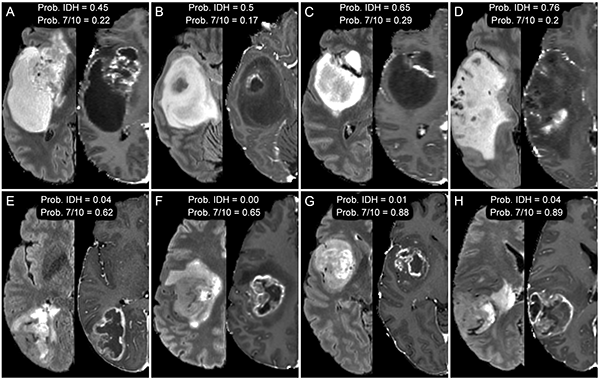
Glioblastoma is the most common form of brain cancer, yet it remains challenging to treat. Fortunately, there are numerous ongoing clinical trials at UC San Francisco and around the world focused on treating glioblastoma with targeted therapies such as drugs designed to target unique genetic alterations that may be present in each individual patient’s tumor. While promising, the targeted therapy approach is limited by the need for tumor sampling (i.e., biopsy) and genetic sequencing, which are costly and sometimes limited in availability or feasibility.
A new study from scientists at UCSF Radiology and Biomedical Imaging uses artificial intelligence (AI) to predict the presence of specific genetic alterations in individual patient’s tumors using only non-invasive brain MRI. Using this AI-driven “virtual biopsy” approach, they were able to accurately identify several…


























